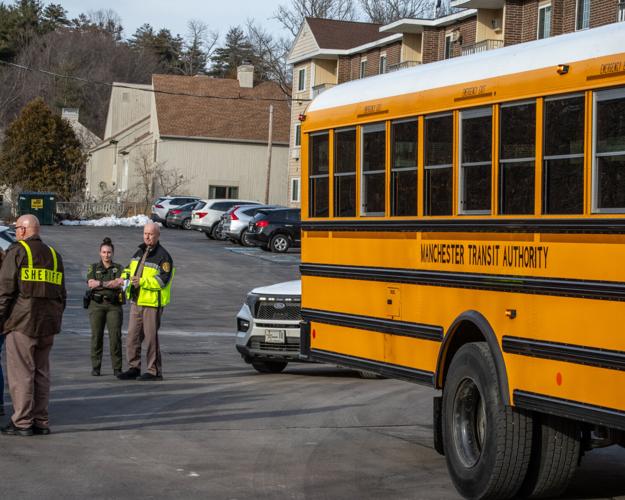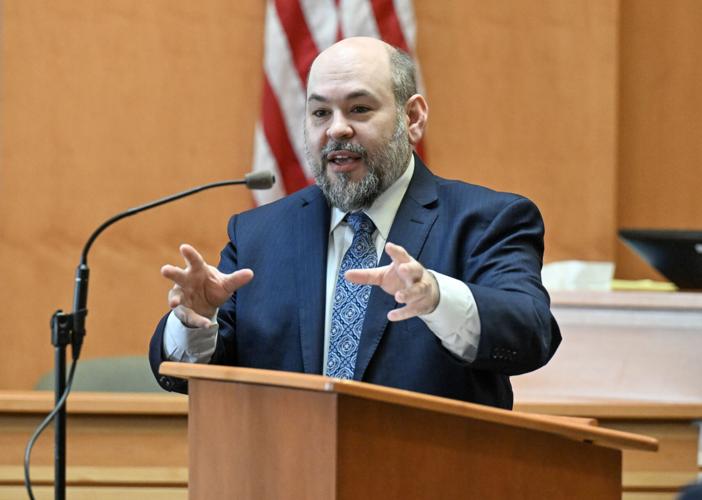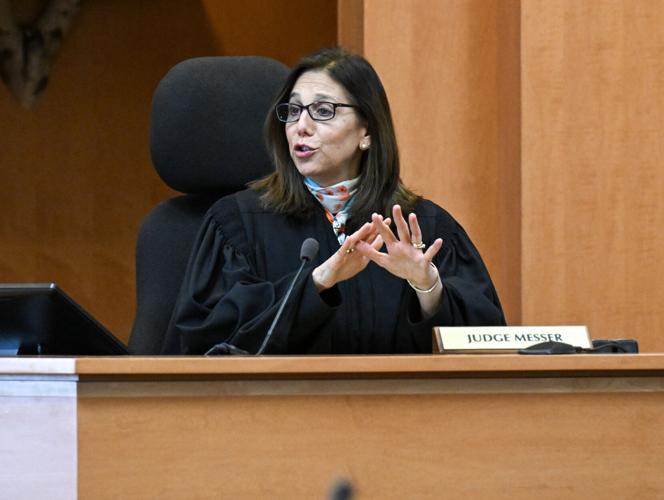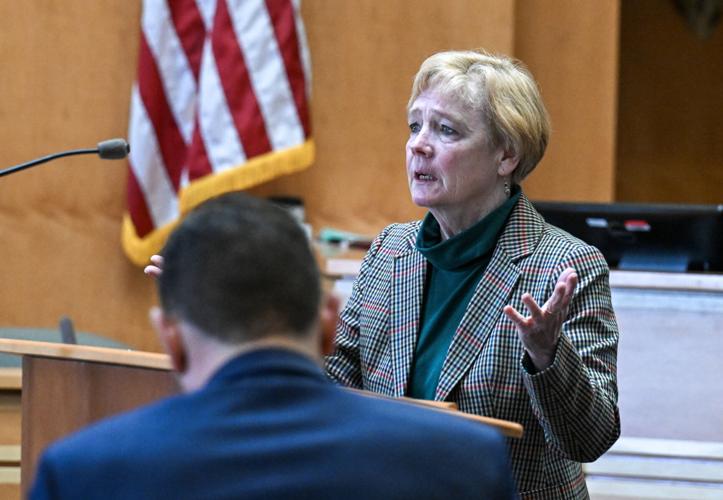Adam Montgomery agreed on Wednesday to admit guilt on charges of abuse of a corpse and falsifying evidence after not showing up for the first day of his trial for the murder of his 5-year-old daughter, Harmony.
His attorneys are expected to formally make the admissions during opening statements on Thursday morning at Hillsborough County Superior Court in Manchester.
Previously, Montgomery adamantly denied killing his daughter.
Montgomery, who refused to be brought to court from prison on Wednesday, spoke with Judge Amy Messer via video. He said he had talked at length with his attorneys, Caroline Smith and James Brooks, about allowing the admission.
Messer found Montgomery made a “knowing, intelligent and voluntary waiver” of his rights. The jury was not in court when Messer made her ruling.
The admission is seen not as a change of plea but a strategy in his defense.
Montgomery, 34, is charged with second-degree assault for allegedly causing bodily injury to Harmony between July 1 and July 22, 2019, including a black eye, and with second-degree murder in connection with her death in December 2019.
Along with the murder charge and the charges he admits to, Montgomery faces a charge of witness tampering.
Harmony has been on the minds of many across the nation since police announced on New Year’s Eve 2021 that the little girl had been missing for nearly two years. Months later, they announced she had been killed.
At the start of Wednesday’s proceedings, Messer and the lawyers talked in private after Montgomery waived his right to appear and jury selection continued. Montgomery is being held at the state prison in Concord after being convicted of six unrelated felony weapons charges and sentenced to at least 32 years.
Jury selection, which began Tuesday morning, concluded Wednesday with 14 women and three men sworn in. Four will be alternates.
During the last round of jury selection, Smith and prosecutor Benjamin Agati were able to ask questions of the prospective jurors.
Agati told the jurors that Harmony’s body has never been found and that a medical examiner will not take the stand to testify in the case. He said the search for Harmony continues.
He also asked the jurors whether they had thoughts on negotiated plea agreements, likely related to testimony expected by Montgomery’s estranged wife, Kayla. She negotiated a plea deal on perjury charges for lying to a grand jury.
Smith spoke of the scale of the investigation and whether jurors could believe police could get it wrong.
She mentioned Montgomery not appearing in court Wednesday morning.
“What if at the end of the trial you don’t hear from Adam?” she asked. Most agreed it should not be held against him.
Judge Messer excused one woman after she told Smith she would likely be overcome with emotion at some of the details expected to be presented during trial. Another man said the extent of the trial hit him when he returned home to his 9-month-old baby. He also was excused.
On Wednesday afternoon, jurors boarded a bus and drove by some key locations in the case, including a methadone clinic, Burger King parking lot and Union Street apartment building. A memorial to Harmony in front of the building was covered with a blue tarp.
“In some ways, it is going to be the beginning of a journey that you will likely never forget,” Agati said. “This is also the last journey that Harmony Montgomery made while she was alive and where her body went afterward.”
Montgomery is accused of striking Harmony in the head multiple times after a bathroom accident in the car.
Smith said the stops are key in the case, but not Harmony’s last journey. She called the stops “exhibits in your mind” to be applied to testimony offered at trial.
One of the stops was at the intersection of Webster and Elm, where the Chrysler Sebring they were driving broke down and he found out Harmony had died, according to prosecutors. Agati asked the jury to focus on the traffic and nearby gas station.
Montgomery’s response to the situation was to “take Harmony and to stuff her in a duffel bag,” Agati said.
Messer made a ruling that Montgomery would have to let the court know at least an hour in advance if he would refuse transport.
“The court informed the defendant that if he continued to refuse to be transported for trial it would be deemed a waiver of his right to be present and the trial would proceed in absentia,” the ruling reads. “The defendant confirmed he understood.”






























